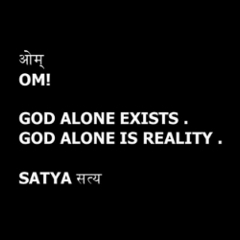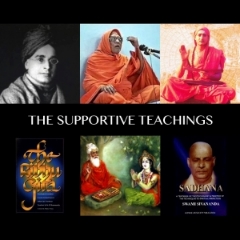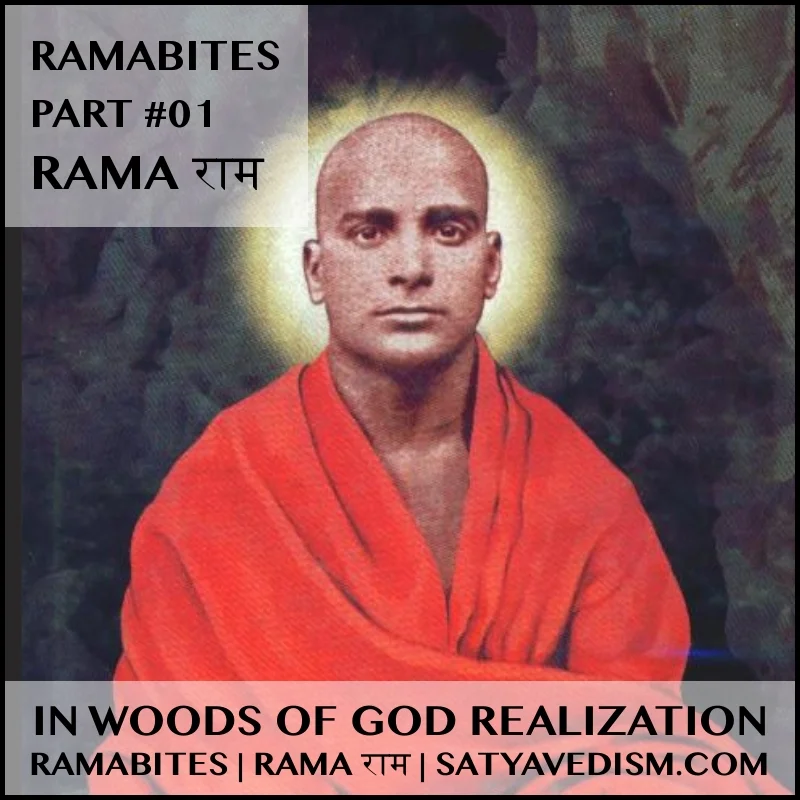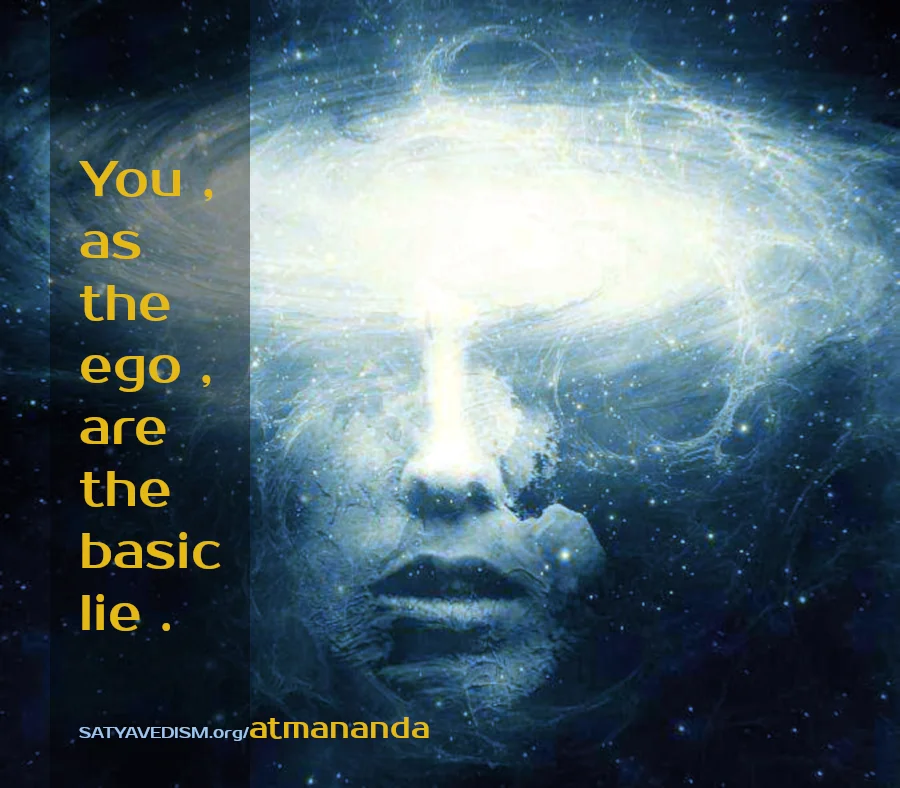CHANDOGYA UPANISAD | 7.25.2 | AMOETD
| | homeCHANDOGYA UPANISAD | 7.25.2 | SRI ADI SANKARACARYA
athata atmadesa eva atmaivadhastat , atmoparistat , atma pascat , atma purastat , atma daksinatah , atmottaratah , atmaivedam sarvamiti . sa va esa evam pasyannevam manvana evam vijaman atmarati ratmakrida atmamithuna atma nandah sa svarad bhavati tasya sarvesu lokesu kamacaro bhavati atha ye 'anyathato vidur anyarajanas te ksayyaloka bhavanti tesam sarvesu lokesvakamacaro bhavati . || 7.25.2 ||
2 . Now follows the teaching through Self . The Self itself is below , the Self above , the Self behind , the Self before , the Self to the right , the Self to the left ; the Self is all this .
One who sees thus , reflects thus and understands thus , loves the Self , revels with the Self , enjoys the company of the Self , and rejoices in the Self , one becomes the ' Self-Sovereign ' ( or Ruler of Heaven ) one becomes free to do what one pleases , in all regions ; while those that know otherwise than this are ruled by others , and live in perishable regions , and they are not free to do what they please , in all regions .
|| BHASYA || : People lacking in discrimination speak of the aggregate of the body and other things ( sense-organs etc , etc ) , as ' I ' ; in order to set aside this notion ( that the notion of ' I ' through which the Infinite has been explained refers to the body ) , — now follows the teaching through Self ( which is really what the notion of ' I ' stands for ) ; that is , the Infinite is now going to be described through the Self Itself , in the form of Pure Being .
' It is Self Itself that is all everywhere ' , — the wise one who sees this One , unborn , all-pervading , like Akasha , full , without a second , and having seen It , reflects upon It and understands It , — one comes to love Self ; — ie has all this love , affection , joy , centered in the Self , — so also one revels with the Self ; ' love ' ' rati ' stands for what is carried on which [ sic ] the body alone , while ' Real ' krida , stands for what is carried on through external means entirely ; as is clear from the use of the root ' krida ' to ' revel ' , which is used in the world in connection with one's spouses and friends ; — it is not so for the wise one ; for one both these ( ' love ' and ' revelling ' ) are brought about by one's knowledge of the Self . — The enjoyment of company — is pleasure due to the companionship of two persons , — this also for the wise , is independent of duality ( the second person ) .
Similarly , one rejoices in the Self ; for the Ignorant , there rejoicing due to sound and other objects , not so for the wise , for whom , all rejoicing , at all times and in all ways is due to the Self alone , — it is not due to such agencies as the body , the physical-life and experiences , and is entirely independent of all external things .
The knowing one who is as described becomes the Self-Sovereign even while one is still alive , and also when one's body dies , one becomes the Self-Sovereign ( or Ruler of Heaven ) . And inasmuch as one becomes aII this , one becomes free to do as one pleases , in all regions .
The ' freedom to act as one pleases ' that has been spoken of , in connection with the ' Spirit ' and other stages , — has been with reference to the restricted spheres specially mentioned therein ; and the fact being subject to the rule of others was a logical implication , from the fact that there were still higher degrees of freedom etc , — while what is done in the present context is that reference is made to the freedom of action and self-sovereignty as suggested by the circumstances of the case and then the cessation of those restricted grades of freedom etc , is stressed , by means of such expressions as ' one becomes the Self-Sovereign ' .
While those that know otherwise than this , — ie who entertain notions contrary to the one herein declared , — or who have not rightly understood the view herein propounded , — are ruled by others , — ie one such as have other persons for their ruler , and also live in perishable regions ; we have already explained that notions of diversity appertain to the Finite , and the Finite is ' mortal ' .
Hence , it follows that those who hold to the idea of duality ( diversity ) live in perishable regions , in accordance with the character of their own ideas ; — and for this same reason they are not free to do as they please , in all regions .
|| UPADESA SAHASRI : A METHOD OF ENLIGHTENING THE DISCIPLE || I.I.6 || COMPLETE AMOETD SERIES ➤➤ | INTRODUCTION ➤➤ ||
|| THIS SCRIPTURE SERIES SOURCE || ➤
|| 1 || http://www.SATYAVEDISM.com ||
|| 2 || http://bit.ly/SRIADISHANKARA ||
http://www.SATYAVEDISM.com/shankara/amoetd/
SOURCE | SATYAVEDISM.ORG



































































































